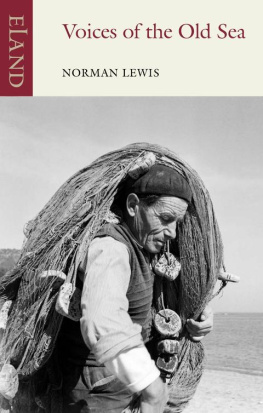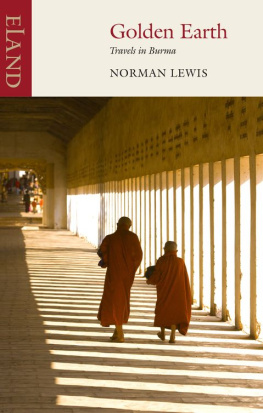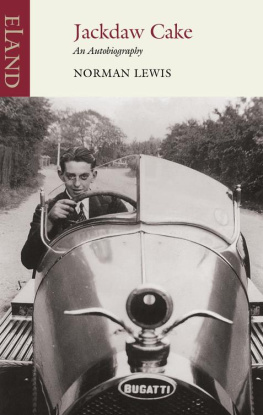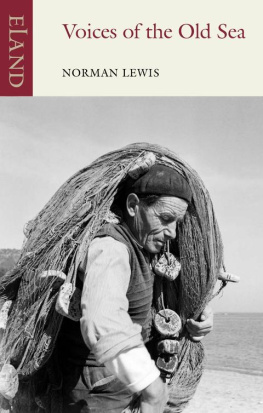A FTER THREE WAR YEARS in the Army overseas I looked for the familiar in England, but found change. Perhaps it was the search for vanished times that drew me back to Spain, which in some ways I knew better than my own country a second homeland to be revisited when I could. Here the past, I suspected, would have been embalmed, and outside influence held at bay in a country absorbed in its domestic tragedy. It was a conjecture that proved largely to be true. The Spain I returned to was still recognisable as that of Lorca, of Albniz and of De Falla, still as nostalgically backward-looking as ever, still magnificent, still invested with all its ancient virtues and ancient defects.
Following a preliminary reconnaissance of the whole peninsula I settled for reasons that are made evident in this book in the remote fishing village of Farol. I had had medical advice to lead as active a life as possible, so I took out a licence and became a part-time fisherman, a pursuit which not only consumed the energies but provided the opportunity for close association with men not wholly freed from the customs of the Celto-Iberian past.
By the end of my third season it was clear that Spains spiritual and cultural isolation was at an end, overwhelmed by the great alien invasion from the North of money and freedoms. Spain became the most visited tourist country in the world, and slowly, as the foreigners poured in, its identity was submerged, its lifestyle altered more in a single decade than in the previous century. Now twenty-five years after my first memorable season among its uncorrupted fisherfolk it is as remote from Lorca as the Romancero Gitano is from the Spain of El Cid Campeador, and the Reconquista.
(When asked how the great changes that had taken place were likely to affect his future, a fisherman replied, How can anyone say? One thing is certain. Here we have always been, and here, whatever happens, we shall remain, listening to the voices of the old sea.)
W HEN I WENT TO LIVE in Farol the grandmother who owned the house gave me a cat. Dont feed it, she said. Dont take any notice of it. It can sleep in the shed and itll keep the rats away. Farol was full of cats, for which reason it was often called Pueblo de los Gatos cat village. There were several hundred of them living in whatever accommodation they could find in the village, and in caves in the hill behind it. They were an ugly breed, skinny with long legs and small, pointed heads. You saw little of them in the daytime, but after dark they were everywhere. The story was that Don Alberto, the local landowner who was also a bit of an historian, claimed that they had always been there and produced a fanciful theory, based on some reference made to them by an early traveller, that they had some connection with the sacred cats of Ancient Egypt. Mentioning this, the fishermen of Farol would screw their fingers into their temples and roll their eyes in derision as if to say, what will he come up with next? Their story was that the cats had been imported in the old days to clean up the mess left when they degutted fish on the spot before packing them up to be sent away. No one in this part of the world would ever kill a domestic animal, so their numbers soon got out of control. In addition to scavenging round the boats, they hunted lizards, frogs, anything that they deemed edible, including fat-bodied moths attracted to the oleanders on summer evenings, which they snatched out of the air with their paws. Whenever the cat became too old or sick to have about the place it would be put in a bag and taken to the cork forest and there abandoned. The people who owned this part of the forest lived in the village of Sort, about five kilometres away. They had no cats but were overrun by dogs, and as they, too, were squeamish about taking life they brought down unwanted animals, borrowed a boat, and left them to die of hunger and thirst on an island a hundred yards or so off-shore.
*
It soon became clear that the Grandmother was a person of exceptional power and influence in the village. All the domestic aspects of life and largely the financial ones too came under the control here of the women, dominated, to use the local word, by the Grandmother, just as the males were dominated by the five senior fishermen owning the major shares in the big boats. In each case the domination was subtle and indirect, a matter rather of leadership accorded to experience and vision.
The Grandmother had gathered a little respect in deference to her money but most of it was based on sheer spiritual qualities. She was large, dignified and slow-moving, dressed perpetually in black, with the face of a Borgia pope, a majestic nose and a defiant chin, sprouting an occasional bristle. A muscular slackening of an eyelid had left one eye half-closed, so that she appeared at all times to be on the verge of a wink. Her voice was husky and confiding, although in a moment of impatience she was likely to burst into an authoritarian bellow. Everything she said carried instant conviction, and the villagers said that she was inclined to make Gods mind up for him, because whenever people left a loophole of doubt about future intentions by adding the pious formula if God is willing, she would decide the matter there and then with a shout of Si que quiere of course hes willing.
As a matter of course the Grandmother meddled in family affairs of others. She provided instruction on the mechanics of family planning, investigated the household budgets of newly married couples to decide when they could hope (if ever) to afford a child, and put forward a suitable name as soon as it was born. All the names suggested for male children were taken from a book she possessed on the generals of antiquity, and the village was full of inoffensive little boys called Julio Csar, Carlos Magna (Charlemagne), Mambr (Marlborough) and Napolen. And one luckless child was doomed to go through life bearing the name Esprit de Cor (esprit de corps), who, someone had assured the Grandmother, was the greatest commander of them all.
Above all the Grandmother was an expert on herbal remedies, and the villagers saved on the doctors fees by prescriptions provided after a scrutiny of their faeces and urine. Mear claro y cagar duro (clear piss and hard shit), she claimed quoting a saying attributed to Lope de Vega were at the base of health and prosperity. She also offered a sporadic supply of the urine of a woman who had recently given birth, locally regarded as effective in the treatment of conjunctivitis and certain skin ailments although in a village where the birthrate must have been one of the lowest in the world, it was rare for a donor to be available.
My room in the Grandmothers house was odd-shaped and full of sharp edges, with a ceiling slanting up in four triangles to a centre point, and dormer windows throwing segments of light and shade across walls and floor. In Farol they were nervous of the use of colour, so it was all stark white, and living in this room was rather like living inside a crystal, in which the Grandmother, when she came on the scene, appeared as a black, geometrical shape.
A tiny cubicle contained a charcoal-burning stove, and another a floor of ceramic tiles. It was a feature of the house that illuminated a nook in the Grandmothers mind inhabited by poetic fancies, for the tiles pattern made to the Grandmothers own design depicted flowers on intertwining stems, growing from a central hole beside which a powerful disinfectant in an amphora-shaped container had been placed.
I was taken into the garden to admire another feature of the accommodation : three strands of barbed-wire twisted together round the top of the wall, cut from a roll the Grandmother had bought as an extravagance. Beyond the wall a rampart of sunflowers besieged by goldfinches hung their heads, and through their stalks I could see the beach with glossy, translucent pebbles glittering among the coarse limestone chips, and a rank of purple and yellow fishing boats leaning on it. I asked the price, and the Grandmothers eyes became misted with introspection. She passed her tongue very slowly in a clockwise direction round her teeth inside the lips, and said five pesetas a day. Here, she said, you will enjoy great tranquillity.








